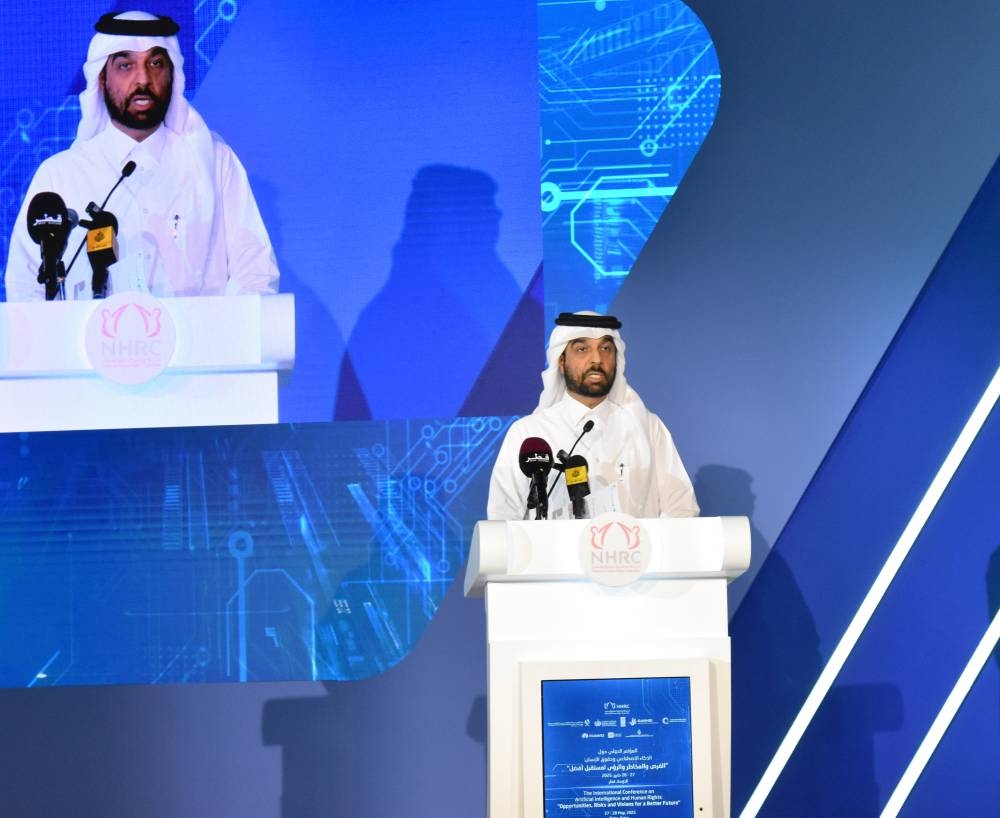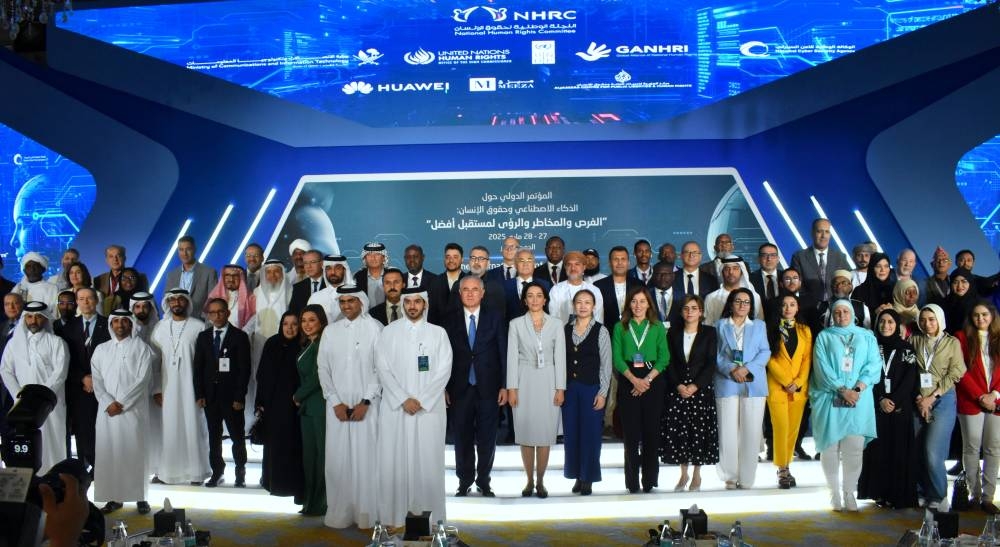The international conference on ‘Artificial Intelligence and Human Rights: Opportunities, Risks and Visions for a Better Future’ concluded Wednesday with calls for binding international legislation for the safe and responsible use of Artificial Intelligence (AI).
While presenting the closing statement, HE the Secretary-General of the National Human Rights Committee (NHRC) Sultan Bin Hassan al-Jamali stressed the need to establish international and local regulatory frameworks to ensure the responsible use of this technology.
The statement included a set of recommendations and basic principles aimed at guiding future efforts toward developing comprehensive policies and legislation. Al-Jamali emphasised the urgent need to establish an international legal framework regulating the use of artificial intelligence, with a focus on protecting fundamental human rights such as privacy, non-discrimination and freedom of expression.
He underlined the importance of concerted efforts among governments, international organisations, civil society and the private sector to ensure the development and deployment of artificial intelligence in ethical and responsible ways.
The statement called for intensified efforts to raise awareness about the opportunities and risks of artificial intelligence among all segments of society and to enhance critical thinking skills around these technologies. It urged the adoption of ethical design principles for artificial intelligence, ensuring transparency, accountability and fairness in the development and deployment of these systems. Also, it called for special attention to protecting the rights of the most vulnerable groups who may be disproportionately affected by the risks of artificial intelligence.
Organised by NHRC in cooperation with a group of prominent local and international entities including the Ministry of Communications and Information Technology, National Cyber Security Agency, United Nations Development Programme and Office of the High Commissioner for Human Rights, the conference witnessed broad participation including more than 800 experts and officials from around the world.
The two-day conference featured intensive discussions and valuable contributions on the challenges and opportunities posed by artificial intelligence at the human rights and humanitarian levels.
This international event underscored the need to formulate a global legislative framework that ensures the safe and responsible use of artificial intelligence and prevents it from becoming a tool for violating privacy, promoting discrimination and undermining fundamental freedoms.
The sessions of the conference witnessed strong and unified calls from participants for the development of binding national and international legislation that would contribute to filling the current legislative gap surrounding artificial intelligence applications. Several speakers emphasised the paramount importance of adopting a clear international legal framework that not only balances the benefits of artificial intelligence but also mitigates potential social, economic and human rights risks.

HE the Secretary-General of the NHRC Sultan bin Hassan al-Jamali presenting the final statement at the conference.

Participants at the end of the conference. PICTURE: Thajudheen

